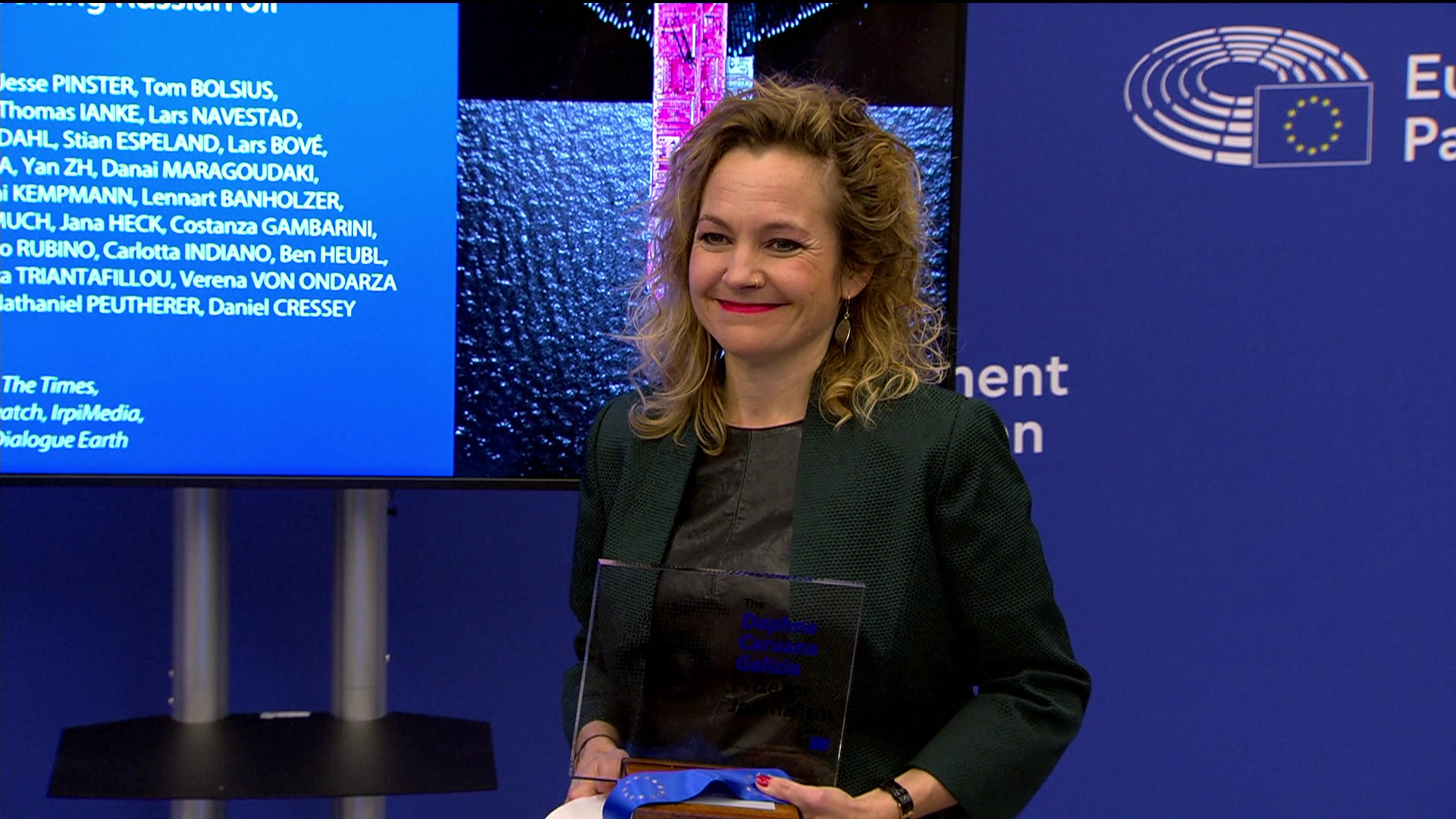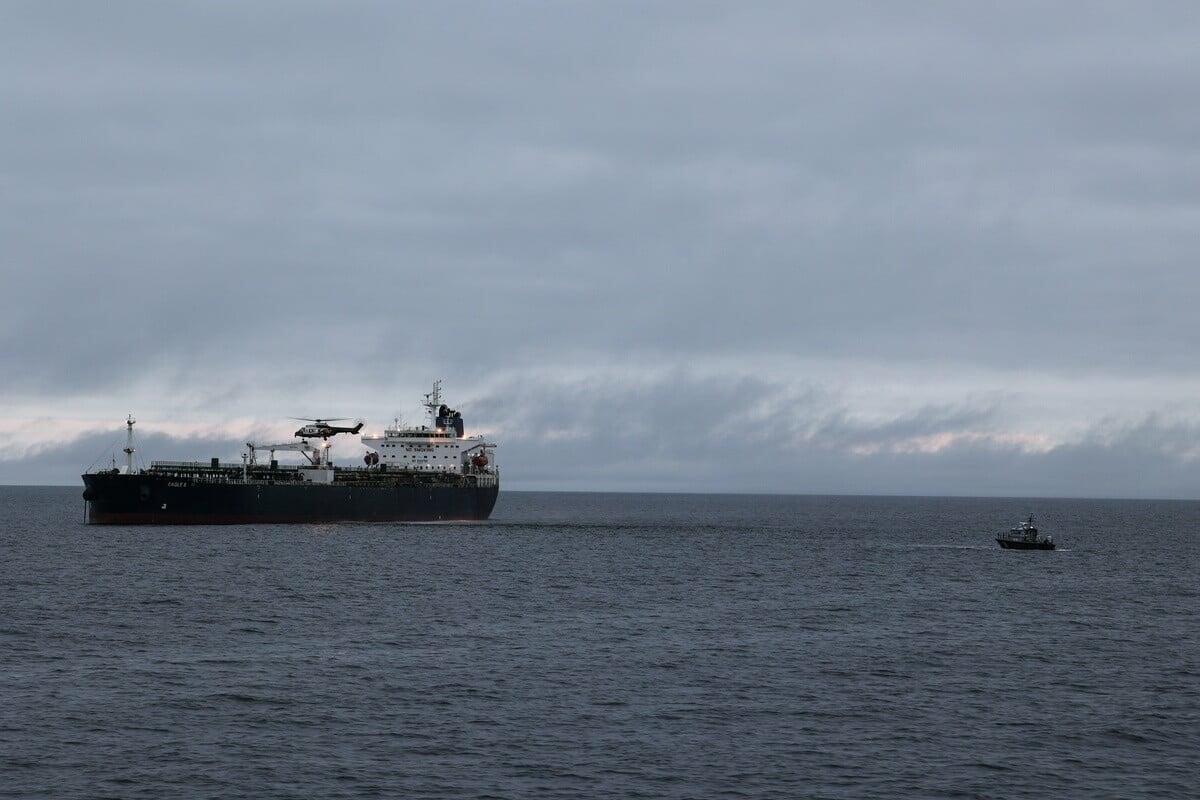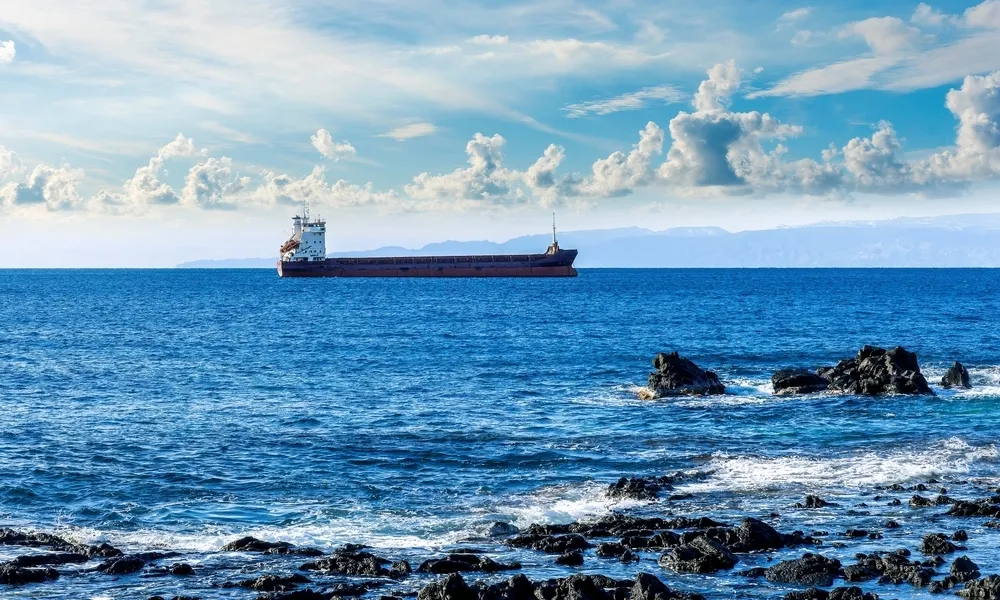Follow the Money won the 2025 Daphne Caruana Galizia Journalism Prize for a cross-border investigation that mapped hidden commercial networks enabling Russia to move oil despite Western sanctions. Speaking to Politis, deputy editor Birte Schohaus outlines how a “shadow fleet” emerged, the part played by Greek shipowners through vessel sales, and the objections raised by Cyprus and Greece to a proposed EU rule aimed at closing loopholes.

Schohaus says the team had tracked sanctions evasion across sectors, but oil revenues made tankers the obvious focus. Russia did not traditionally own a huge tanker fleet, yet within months hundreds of ships were carrying sanctioned crude. The question was where the ships came from.
The scale of the shadow fleet
At the time of reporting, the team identified roughly 600 tankers operating in this murky ecosystem. The number shifts as sanctions bite and new vessels are added.
Ships are sold via intermediaries in third countries and re-registered under flags of convenience. Control changes hands through shell companies, management rotates, names and flags change, and ownership trails run through jurisdictions such as Hong Kong and others, making tracing difficult.
Greek shipowners’ role
According to Schohaus, most of the vessels traced in the project were sold out of Greece, followed by Germany and the United Kingdom. Greek partners on the project faced legal threats from shipping interests before publication. While Schohaus does not allege direct political involvement, she notes close links between very wealthy shipowners and politics.
The consortium counted 230 older tankers sold into the network, generating more than 6 billion dollars for Western sellers. Many were ageing ships that in normal conditions would be near scrap, yet found new life in sanction-busting trades.
Cyprus, Greece and the EU clause that failed
Schohaus says the European Commission explored a contractual clause to be inserted in every tanker sale, prohibiting resale to parties likely to feed the shadow fleet. Cyprus, Greece and Malta were among member states that opposed the idea, and the measure did not advance. Without a binding bar, the trade continues.
The investigation team, particularly colleagues in the UK and Greece, faced increasing legal threats. Schohaus describes this as a growing and common tactic designed to deter public-interest reporting.

Ethics and market reality
Selling an old tanker is not per se illegal, Schohaus notes, but it is ethically questionable when the likely end use is to undermine sanctions. She believes sellers are now more cautious, yet the network persists as long as profit incentives remain.
Dependence on Russian oil and gas has fallen but not disappeared. Schohaus argues that Europe has moved in the right direction on diversification, though it is not there yet.
What comes next
Schohaus expects the shadow fleet to endure unless enforceable restrictions are introduced across the sale and transfer chain. With billions at stake and a steady supply of ageing ships, the incentives remain strong.
Follow the Money coordinated the investigation with outlets in Belgium, Denmark, Germany, Greece, Italy, Norway, the Netherlands and the United Kingdom. The project documented how Western shipowners profited while enabling Russia to keep oil moving despite EU and US sanctions.
